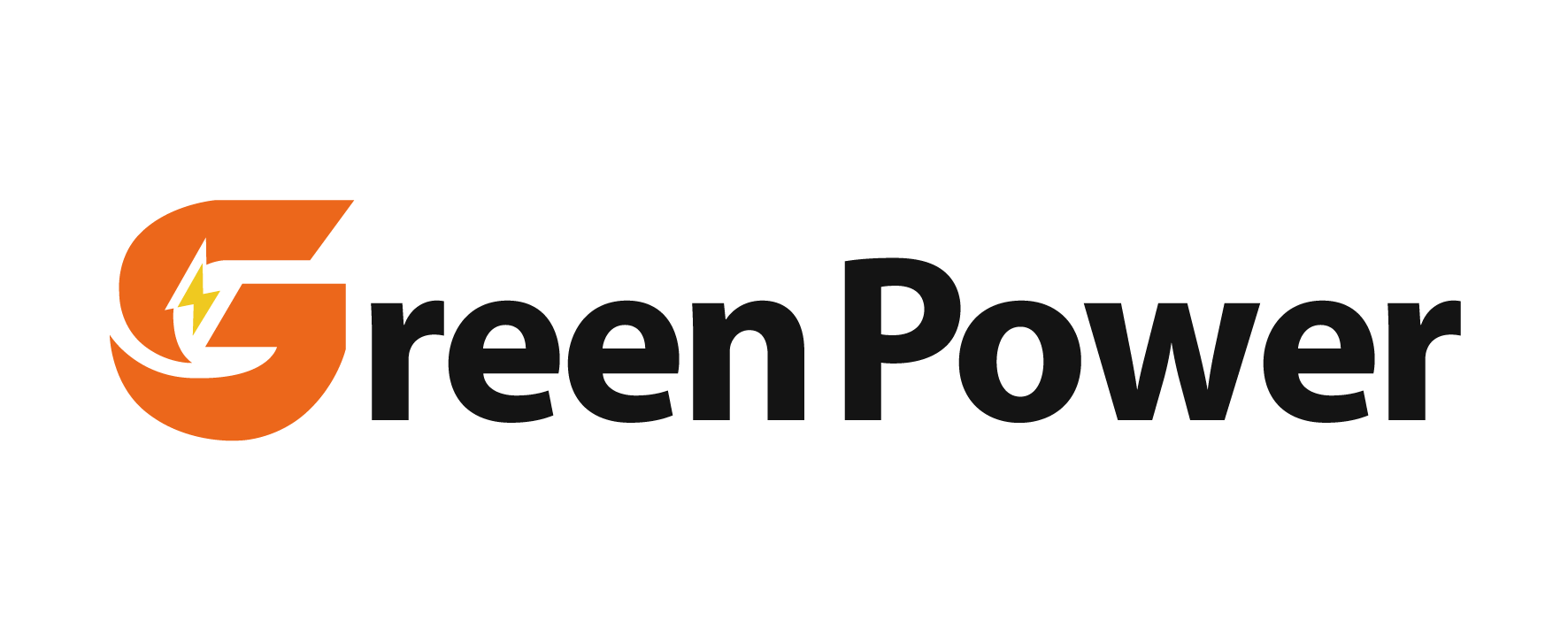የአሁኑ ኢንቨርተር ባትሪዎች ኃይል ግንዛቤ
በቀጣይ የኢነርጂ የተመሰረተ ዓለም፣ ተስኖ የሆነ የኃይል የማይቋቋም ለቤቶች እና ለንግድ ተስኖ አስፈላጊ ሆኖ ቀደ። ኢንቨርተር ባትሪው bateeriya inverter የማይቋቋም የሆነ የኃይል ስርዓት ለማቅረብ የሚያስችል የኃይል መሬት ነው የሚሰጥ የማይቋቋም የሆነ ኃይል በጊዜ የኃይል አቋም እና መጠን መቀያየር። እነዚህ የተሻሉ የኃይል ማከማቻ መፍትሄዎች እንደገና እንደሚቆጠሩ ኃይል መቆራረጫዎችን እንዴት እንደሚያከናውኑ ለውጥ አመጣ፣ ብዙ የማይቋቋም የሆነ የኃይል መፍትሄ ብቻ ሳይሆን እንዲያውም አስፈላጊ ነው።
የኢንቨርተር ባትሪዎች የተሠሩበት ቴክኖሎጂ በከፍተኛ ሁኔታ ለውጥ አመጣ፣ እነሱን በበለጠ ቀልጣፋ፣ የማይበላሽ እና የተሻለ የገንዘብ ትርጉም ለማድረግ እንደሚችሉ አሳይቷል። ስንደርሰው በእነርሱ ጥቅሞች ውስጥ፣ እነዚህ የኃይል መፍትሄዎች በአሁኑ ጊዜ ውስጥ የማይቋቋም የሆነ ነገር እንደሆኑ እና ትክክለኛውን መምረጥ አስፈላጊነቱን የምታገኙበት ቦታ bateeriya inverter በቀን ቀን ሕይወትዎ ውስጥ ትልቅ ለውጥ ሊፈጥር ይችላል።

በመከላከያ እና በተወሰነ ጥራት ያለው ጥቅሞች
በርካታ ጊዜ የሚቆይ የኃይል ጥራት
የዘመናዊ ኢንቨርተር ባትሪዎች በተለያዩ መንገዶች ላይ የተሠራዎች ናቸው እና በተለያዩ የወረዳ ባትሪዎች ጋር ሲነፃፀር የበለጠ ጊዜ የሚቆዩ ናቸው። በአዳስተኛ የሊድ-አሲድ እና ሊቲየም-አዮን ቴክኖሎጂዎች ጋር እነዚህ ባትሪዎች ረጅም ጊዜ የኃይል አቅርቦት ሊያደርጉ ይችላሉ፣ ስለዚህ በረጅም ጊዜ ያለው የኤሌክትሪክ አቅርቦት እንቅስቃሴ ሲቆረጥ የመቆራረጥ ዕድል የለም። የባትሪው የበለጠ ችሎታ እና የኃይል መጠን ምክንያት የሚያስችል ነው የቤት እቃዎች እና የኤሌክትሮኒክ መሳሪያዎች ለረጅም ጊዜ እንዲሰሩ እና ከነፃነፃ አቋርጦ እንዲቆዩ።
የኢንቨርተር ባትሪ የሚቆይበት ጊዜ በተለያዩ ምክንታት ላይ የተመሰረተ ነው፣ ይህም የባትሪውን ችሎታ፣ የተገናኘውን ጭነት እና የመጠቀም አቀራረብን ያካመጥ። የእጅ ላይ ያለው ኢንቨርተር ባትሪዎች በከባድ ጭነት ሁኔታ ላይ ቢሆኑም ቋሚ ጥራት የሚያቀርቡ እንዲሆኑ ነው የተሰራዉ፣ ስለዚህ ይህ ባለቤትነት እና የንግድ ጥቅሞች ሁለቱም ለመጠቀም ተስማሚ ነው።
የበለጠ የኃይል መሙያ ችሎታ
የዘመናዊ ኢንቨርተር ባትሪዎች የተለያዩ ባህሪያት መካከል ለተሻለ ኃይል ማሞቂያ ችሎታ ይታወቃሉ። እነዚህ ባትሪዎች የማሞቂያ ሂደቱን ለማሻሻል የተሻሉ የማሞቂያ አልጎሪዝሞችን ይጠቀማሉ፣ ይህም የቀላል ገብታ ጊዜ እና ለተሻለ የኃይል ተጠቃሚነት ውጤት ይሰጣል። የተሻለው ችሎታ ብቸኛው ኃይል ፍጆታን ብቻ አይደነግፍም እንዲሁም የባትሪው አጠቃላይ ህይወትን ይጨርሳል።
የመሙያ መካኒዝሙ የሙቀት መ compensation compensation እና የቮልቴጅ ማስተካከያ ያሉ የባትሪ ጥበቃ ባለሙያዊ ዘዴዎችን ያካተት እና በተለያዩ የአካባቢ ሁኔታዎች ውስጥ ሙሉ ማፈናቀልን ያረጋግጣል። ይህ የተሻለ የመሙያ ቴክኖሎጂ የባትሪ ጥራትን ለማስቆየት እና የአስተዳደር ጥያቄዎችን ለቀንስ ያስችላል።
ኢኮኖሚያዊና አካባቢያዊ ተፅዕኖ
በጊዜ የሚከናወነው የብድር ትንሽነት
ኢንቨርተር ባትሪ ውስጥ እንደሚሰሩ የብድር ማስገቢያ በረጅ ጊዜ ውስጥ በጣም ትንሽ የገንዘብ ጥበቃዎችን ሊያስከትል ይችላል። የመጀመሪያው ግዢ ዋጋ ቢበዛ ይመስል እንገር፣ የተጠነከረው የኤሌክትሪክ መክፈያ እና የተጠነከረው የአንጓወቂነት ዋጋ የገንዘብ ጥበቃ ለመሆን ይወስዳል። የኢንቨርተር ባትሪዎች የኃይል ተጠናቂ ተግባር ማለት የመሙያ ዙር ጊዜ የተጠነከረ የኃይል ተጠቃሚነት ማለት ነው፣ ይህም በቀን የሚከፈሉት የኤሌክትሪክ መክፈያዎችን በቀጥታ ይነካል።
በተጨማሪም፣ የአዲስ ዘመን ኢንቨርተር ባትሪዎች የረጅ ዕድሜ ስላላቸው በረጅ ጊዜ ውስጥ የተሻጡት ባትሪዎች ያነሰ ይሆናሉ፣ ይህም የጠቅላላው አገልግሎት ዋጋ በተጨማሪ ይቀንሳል። በርካታ የባትሪ አምራቾች አሁን ከአምስት ዓመታት ወይም በተለይ የሚበልጡ ዋስትና ይሰጣሉ፣ ይህም ለእርስዎ የብድር ማስገቢያ ለመጠበቅ ሞክሮ እና የጠበቃነት ምልክት ይሰጣል።
የካርቦን ስፒሮት ቅርጫል
ኢንቨርተር ባትሪ በጠቅላላው የተጠናቀቀው የነዳጅ ምንጭ ላይ የተመሰረተ የጠብታ ኃይል መፍትሄዎችን እንደ ጂነሬተሮች መቀነስ በማድረግ የአካባቢ ጥበቃ ላይ ይ föጠቃወናል። እነዚህ ባትሪዎች በተግባር ጊዜ ምንም ዓይነት የቀና ምርት አይሰጡም እና ለተጨማሪ የአካባቢ ጥበቃ ጥቅሞች ለሶላር ፕነሎች ያሉ የአ renewable ኃይል መገናኛዎች ጋር ሊገናኙ ይችላሉ።
የአሁኑ ኢንቨርተር ባትሪዎች የአካባቢ ጥበቃ ንድፍ ውስጥ የሚነፃፀሩ አካላት እና የተሻሉ የምስክር ዕቃዎች ይካተቱታል፣ ይህም የእኩልዮታቸው መጨረሻ ላይ የአካባቢ ተጽዕኖን እንዲነሰን ያስችለዋል፡፡ ይህ የተወሰነ አቀራረብ የካርቦን ማዕቀብን መቀነስ እና የፓ clean የኃይል መፍትሄዎችን መስፋፋት ለማቅረብ የዓለም ግብዓቶችን ይዛመዳል፡፡
የተመለከተ ጥቅሞች እና የመጠቀም ጥቅሞች
የተለያዩ መሳሪያዎች ጥንካሬ
የአሁኑ ኢንቨርተር ባትሪዎች የተለያዩ የኤሌክትሮኒክስ መሳሪያዎች እና የቤት እቃዎችን ማደግ እንዲችሉ ይገነባሉ፡፡ በመጀመሪያው ብርሃን እና ብንብን ከፍተኛ ኮምፒውተሮች እና የቤት ትምህርት ስርዓቶች እስከ የተሻሉ ኃይል ጠብቆ ቋሚ የውጤት ቮልቴጅ ሲቆዩ ባህሪያቸው የተለያዩ የኃይል ጠብቆ ተጠያቂነት ይኖራቸዋል፡፡ ይህ የተለያዩ ባህሪያት የመሰረት እና የእረፍት መተግበሪያዎች ለሁለቱም ተስማሚ ያደርገዋል፡፡
የኃይል ጥራት ማሻሻያ ባህሪዎች የሚያረጋግጡት የኤሌክትሮኒክስ መሳሪያዎች የበለጠ ጠንካራ እና የማይለዋወጥ ኃይል እንዲያገኙ እና ከቮልቴጅ መስተጋብርና መጨመር የሚመነጭ አደጋን እንዲጠበቁ ያደርጋል፡፡ ይህ የተሻለ ጥብቅ መሆኑ ሁሉም ምድናዊ እና አዲስ መሳሪያዎችን ያካትታል ፣ ይህም ኢንቨርተር ባትሪዎችን ወደፊት የሚያስፈልገውን የኢንቨስትመንት ጥቅም ማቅረባቸውን ያደርጋል፡፡
የባህሪያት እና የመከታተያ ባህሪዎች
የዛሬ የኢንቨርተር ባትሪዎች በባትሪው ሁኔታ፣ በመሙላት ደረጃዎች እና በኃይል ተጠቅሞ አቅጣጫዎች ላይ በቀጥታ መረጃ የሚሰጡት የባህሪያዊ መከታተያ ስርዓቶች አሉት፡፡ ይህ የባህሪያዊ ባህሪዎች ተጠቃሚዎች የኃይል ተጠቅሞቻቸውን ለማሻሻል እና ባህሪያዊ ጠበቃነት በኋላ የባትሪውን ጥራት ለማቆየት ይረዱዋል፡፡
አብዛኛው የሞዴሎች የሞባይል ግንኙነት አማራጮችን ያካተቱ ፣ የስмарት ፋይሎችን በመጠቀም የራቀ መከታተያ እና ቁጥጥርን የሚያስችሉት ፡፡ ይህ ቴክኖሎጂ ተጠቃሚዎች የባትሪው አፈፃፀም መከታተል ፣ የመጠባበቂያ አሳሽቶች እንዲሁም ከፍተኛ በሂታዊ በሂታዊ መሙላት ዘዎችን ለመደራጀት ይችላል፡፡
የተመለስ እና የተለያዩ ጊዜ ውስጥ የተመለስ
ዝቅተኛ የጥገና መስፈርቶች
የአሁኑ ኢንቬርተር ባትሪዎች የተንደደው የአነስተኛ ጥገና ጥቅማቸው ለመቀነስ የተቀረጠው አሂድ የተገነቡ ናቸው። በባትሪዎቹ ውስጥ የተጠቀሙት የተሰለ የመገጣጠሚያ እቃዎችና የአዲስ የእቃ አይነቶች በደጋ የሚሸፈን የውሃ መሙላት ወይም የኤሌክትሮላይት የመፈተሻ ጥያቄን እንዳይኖር ያደርጋል። ቀላል የራስ ገብታ ፍተሻዎችና የመጀመሪያ ጠንካራ ጥገና በአብዛኛው የባትሪውን ሁኔታ በተሻለ ሁኔታ ለማቆየት ተገቢ ነው።
ጠንካራ ዲዛይንና የкачество ክፍሎች በከባድ ሁኔታዎች ውስጥ ተወዳዳሪ አፈፃፀም ለማረጋገጥ ያስችላሉ፣ የመልበስና የመቀየሪያ ተደጋጋሚነቱን በመቀነስ። ይህ የማይጠይቅበት ጣልቃ ባትሪዎችን በተለይ ለተወደደ ቤተሰቦችና ለንግድ አድርጎታል።
የረጅም ዕድሜ የሚያረጋግጥ ባህሪያት
የአስተማማኝ የእቃ እና የማጭበርበሪያ ቴክኖሎጂዎች ጥቅም ላይ መውላቸው የኢንቬርተር ባትሪዎችን የመቆም ጊዜ በብዙ ይጨርሳል። የመሟላት መከላከያ፣ የበለጠ መሙላት መከላከያ እና የሙቀት አስተዳደር ያሉ ተግባራት የባትሪውን መድረስ የሚያደርገውን የተለያዩ ምክንያቶች በአንድነት ይከላከላሉ። ይህ በረጅ የአገልግሎት ጊዜ እና ለវጪዎት ዋጋ ለማሻሻል ይርዱናል።
አሁን በብዙ የማርክ ቤቶች የሚገነቡት የፍፁም ቴክኖሎጂ እና የመበላሸት እና የፓላውን መድረስ የሚከላከሉ የተለያዩ ብረቶች የባትሪውን ጠንካራነት በተጨማሪ ይገነባል። ይህ የተሻሻለ ጥራት በተመሳሳይ ጊዜ የኢንቬርተር ባትሪዎች በተገቢው መንገድ በመጠባበቅ በረጅ ጊዜ የመቆም ችሎታቸውን ይጠብቃል።
በተደጋጋሚ የሚነሱ ጥያቄዎች
ኢንቬርተር ባትሪው በተለመደ ስንት ዓመት ይቆማል?
የኢንቬርተር ባትሪው የመቆም ጊዜ በተለመደ 5 እስከ 10 ዓመት ድረስ ይቆጠራል፣ ይህ ጊዜ የሚያገለግለው በመጠቀም መንገድ፣ በመጠባበቅ እና በአካባቢው ሁኔታዎች ላይ የተመሰረተ ነው። በተደጋጋሚ መጠባበቅ እና በተገቢው መጠቀም የባትሪውን የአገልግሎት ጊዜ ለመጨመር ይርዱናል።
ኢንቬርተር ባትሪውን ጋር ሰላማዊ ጥቅሞችን ጋር መጠቀም ይቻላል?
አዎ, በርካታ የአሁኑ ኢንቬርተር ባትሪዎች በፀሐይ ኃይል ሥርዓቶች ጋር በተሳካ ሁኔታ ለመስራት እንዲያገለግሉ የተቀየሩ ናቸው። ይህ የማዋሃድ ሂደት የኃይል ማከማቻ እና የአ renewable ኃይል ምንጭ በተሻለ መንገድ ለመጠቀም ይረዳል።
ቤቴ ለመጠቀም የኢንቬርተር ባትሪ መጠን ምን ያህል መሆን አለበት?
የተገቢው የባትሪ መጠን በእርስዎ የኃይል የጠበቅነቶች ላይ የተመሰረተ ነው፣ ይህም ወቅታዊ የኃይል መቆራረጫዎች ውስጥ ለመስራት የሚፈልጉትን የኤፒላንስ ብዛት እና ዓይነት ያካትታል። የእርስዎ የኃይል የጠበቅነቶች የሙያ ግምገማ የእርስዎ ሁኔታ ለመሸከም ተስማሚ የባትሪ ችሎታ ለመወሰን ይረዳል።
የኢንቬርተር ባትሪዎች በቤት ጎራ ለመጠቀም ደህንነቱ አለመኖሩ?
ዘመናዊ የኢንቬርተር ባትሪዎች በአደጋ ጥብቅ ጥበቃ፣ የሙቀት መቆጣጠር እና የተዘበራረቀ አካል ያካትታሉ የደህንነት ብዙ ባህሪያት አሉላቸው፣ ይህም በተገቢው መጫኛ እና ጠብቆ ማቆም ጊዜ በቤት ጎራ ለመጠቀም ተስማሚ ያደርገዋል።

